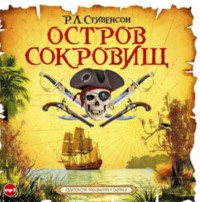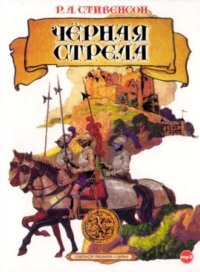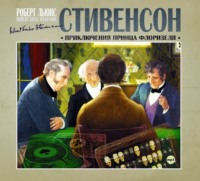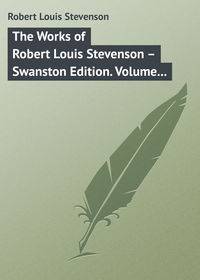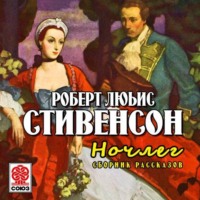The Works of Robert Louis Stevenson – Swanston Edition. Volume 14
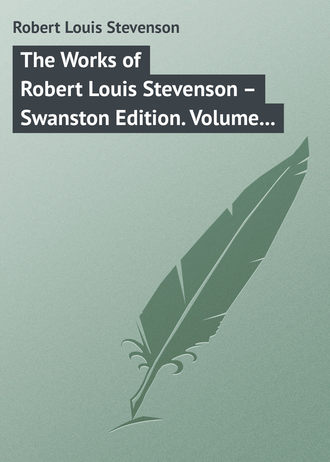 полная версия
полная версияThe Works of Robert Louis Stevenson – Swanston Edition. Volume 14
Язык: Английский
Год издания: 2017
Добавлена:
Настройки чтения
Размер шрифта
Высота строк
Поля
VI
A VISIT FROM THE SEA
Far from the loud sea beachesWhere he goes fishing and crying,Here in the inland gardenWhy is the sea-gull flying?Here are no fish to dive for;Here is the corn and lea;Here are the green trees rustling.Hie away home to sea!Fresh is the river waterAnd quiet among the rushes;This is no home for the sea-gull,But for the rooks and thrushes.Pity the bird that has wandered!Pity the sailor ashore!Hurry him home to the ocean,Let him come here no more!High on the sea-cliff ledgesThe white gulls are trooping and crying,Here among rooks and roses,Why is the sea-gull flying?VII
TO A GARDENER
Friend, in my mountain-side demesne,My plain-beholding, rosy, greenAnd linnet-haunted garden-ground,Let still the esculents abound.Let first the onion flourish there,Rose among roots, the maiden-fair,Wine-scented and poetic soulOf the capacious salad-bowl.Let thyme the mountaineer (to dressThe tinier birds) and wading cress,The lover of the shallow brook,From all my plots and borders look.Nor crisp and ruddy radish, norPease-cods for the child’s pinaforeBe lacking; nor of salad clanThe last and least that ever ranAbout great nature’s garden-beds.Nor thence be missed the speary headsOf artichoke; nor thence the beanThat gathered innocent and greenOutsavours the belauded pea.These tend, I prithee; and for me,Thy most long-suffering master, bringIn April, when the linnets singAnd the days lengthen more and more,At sundown to the garden door.And I, being provided thus,Shall, with superb asparagus,A book, a taper, and a cupOf country wine, divinely sup.La Solitude, Hyères.VIII
TO MINNIE
(WITH A HAND-GLASS)A picture-frame for you to fill,A paltry setting for your face,A thing that has no worth untilYou lend it something of your grace,I send (unhappy I that singLaid by a while upon the shelf)Because I would not send a thingLess charming than you are yourself.And happier than I, alas!(Dumb thing, I envy its delight)’Twill wish you well, the looking-glass,And look you in the face to-night.1869.IX
TO K. de M
A lover of the moorland bareAnd honest country winds you were;The silver-skimming rain you took;And love the floodings of the brook,Dew, frost and mountains, fire and seas,Tumultuary silences,Winds that in darkness fifed a tune,And the high-riding, virgin moon.And as the berry, pale and sharp,Springs on some ditch’s counterscarpIn our ungenial, native north —You put your frosted wildings forth,And on the heath, afar from man,A strong and bitter virgin ran.The berry ripened keeps the rudeAnd racy flavour of the wood.And you that loved the empty plainAll redolent of wind and rain,Around you still the curlew sings —The freshness of the weather clings —The maiden jewels of the rainSit in your dabbled locks again.X
TO N. V. de G. S
The unfathomable sea, and time, and tears,The deeds of heroes and the crimes of kingsDispart us; and the river of eventsHas, for an age of years, to east and westMore widely borne our cradles. Thou to meArt foreign, as when seamen at the dawnDescry a land far off, and know not which.So I approach uncertain; so I cruiseRound thy mysterious islet, and beholdSurf and great mountains and loud river-bars,And from the shore hear inland voices call.Strange is the seaman’s heart; he hopes, he fears;Draws closer and sweeps wider from that coast;Last, his rent sail refits, and to the deepHis shattered prow uncomforted puts back.Yet as he goes he ponders at the helmOf that bright island; where he feared to touch,His spirit re-adventures; and for years,Where by his wife he slumbers safe at home,Thoughts of that land revisit him; he seesThe eternal mountains beckon, and awakesYearning for that far home that might have been.XI
TO WILL. H. LOW
Youth now flees on feathered foot,Faint and fainter sounds the flute,Rarer songs of gods; and stillSomewhere on the sunny hill,Or along the winding stream,Through the willows, flits a dream;Flits but shows a smiling face,Flees, but with so quaint a grace,None can choose to stay at home,All must follow, all must roam.This is unborn beauty: sheNow in air floats high and free.Takes the sun and makes the blue; —Late with stooping pinion flewRaking hedgerow trees, and wetHer wing in silver streams, and setShining foot on temple roof:Now again she flies aloof,Coasting mountain clouds and kiss’tBy the evening’s amethyst.In wet wood and miry lane,Still we pant and pound in vain;Still with leaden foot we chaseWaning pinion, fainting face;Still with grey hair we stumble on,Till, behold, the vision gone!Where hath fleeting beauty led?To the doorway of the dead.Life is over, life was gay:We have come the primrose way.XII
TO MRS. WILL. H. LOW
Even in the bluest noonday of July,There could not run the smallest breath of windBut all the quarter sounded like a wood;And in the chequered silence and aboveThe hum of city cabs that sought the Bois,Suburban ashes shivered into song.A patter and a chatter and a chirpAnd a long dying hiss – it was as thoughStarched old brocaded dames through all the houseHad trailed a strident skirt, or the whole skyEven in a wink had over-brimmed in rain.Hark, in these shady parlours, how it talksOf the near Autumn, how the smitten ashTrembles and augurs floods! O not too longIn these inconstant latitudes delay,O not too late from the unbeloved northTrim your escape! For soon shall this low roofResound indeed with rain, soon shall your eyesSearch the foul garden, search the darkened rooms,Nor find one jewel but the blazing log.12 Rue Vernier, Paris.XIII
TO H. F. BROWN
(WRITTEN DURING A DANGEROUS SICKNESS)I sit and wait a pair of oarsOn cis-Elysian river-shores.Where the immortal dead have sate,’Tis mine to sit and meditate;To re-ascend life’s rivulet,Without remorse, without regret;And sing my Alma GenetrixAmong the willows of the Styx.And lo, as my serener soulDid these unhappy shores patrol,And wait with an attentive earThe coming of the gondolier,Your fire-surviving roll I took,Your spirited and happy book;1Whereon, despite my frowning fate,It did my soul so recreateThat all my fancies fled awayOn a Venetian holiday.Now, thanks to your triumphant care,Your pages clear as April air,The sails, the bells, the birds, I know,And the far-off Friulan snow;The land and sea, the sun and shade,And the blue even lamp-inlaid.For this, for these, for all, O friend,For your whole book from end to end —For Paron Piero’s mutton-ham —I your defaulting debtor am.Perchance, reviving, yet may ITo your sea-paven city hie,And in a felze some day yetLight at your pipe my cigarette.XIV
TO ANDREW LANG
Dear Andrew, with the brindled hair,Who glory to have thrown in air,High over arm, the trembling reed,By Ale and Kail, by Till and Tweed:An equal craft of hand you showThe pen to guide, the fly to throw:I count you happy-starred; for God,When He with inkpot and with rodEndowed you, bade your fortune leadFor ever by the crooks of Tweed,For ever by the woods of songAnd lands that to the Muse belong;Or if in peopled streets, or inThe abhorred pedantic sanhedrin,It should be yours to wander, stillAirs of the morn, airs of the hill,The plovery Forest and the seasThat break about the Hebrides,Should follow over field and plainAnd find you at the window-pane;And you again see hill and peel,And the bright springs gush at your heel.So went the fiat forth, and soGarrulous like a brook you go,With sound of happy mirth and sheenOf daylight – whether by the greenYou fare that moment, or the grey;Whether you dwell in March or May;Or whether treat of reels and rodsOr of the old unhappy gods:Still like a brook your page has shone,And your ink sings of Helicon.XV
ET TU IN ARCADIA VIXISTI
(TO R. A. M. S.)
In ancient tales, O friend, thy spirit dwelt;There, from of old, thy childhood passed; and thereHigh expectation, high delights and deeds,Thy fluttering heart with hope and terror moved.And thou hast heard of yore the Blatant Beast,And Roland’s horn, and that war-scattering shoutOf all-unarmed Achilles, ægis-crowned.And perilous lands thou sawest, sounding shoresAnd seas and forests drear, island and daleAnd mountain dark. For thou with Tristram rod’stOr Bedevere, in farthest Lyonesse.Thou hadst a booth in Samarcand, whereatSide-looking Magians trafficked; thence, by night,An Afreet snatched thee, and with wings upboreBeyond the Aral Mount; or, hoping gain,Thou, with a jar of money, didst embarkFor Balsorah by sea. But chiefly thouIn that clear air took’st life; in ArcadyThe haunted, land of song; and by the wellsWhere most the gods frequent. There Chiron old,In the Pelethronian antre, taught thee lore;The plants he taught, and by the shining starsIn forests dim to steer. There hast thou seenImmortal Pan dance secret in a glade,And, dancing, roll his eyes; these, where they fell,Shed glee, and through the congregated oaksA flying horror winged; while all the earthTo the god’s pregnant footing thrilled within.Or whiles, beside the sobbing stream, he breathed,In his clutched pipe unformed and wizard strainsDivine yet brutal; which the forest heard,And thou, with awe; and far upon the plainThe unthinking ploughman started and gave ear.Now things there are that, upon him who sees,A strong vocation lay; and strains there areThat whoso hears shall hear for evermore.For evermore thou hear’st immortal PanAnd those melodious godheads, ever youngAnd ever quiring, on the mountains old.What was this earth, child of the gods, to thee?Forth from thy dreamland thou, a dreamer, cam’stAnd in thine ears the olden music rang,And in thy mind the doings of the dead,And those heroic ages long forgot.To a so fallen earth, alas! too late,Alas! in evil days, thy steps return,To list at noon for nightingales, to growA dweller on the beach till Argo comeThat came long since, a lingerer by the poolWhere that desirèd angel bathes no more.As when the Indian to Dakota comes,Or farthest Idaho, and where he dwelt,He with his clan, a humming city finds;Thereon a while, amazed, he stares, and thenTo right and leftward, like a questing dog,Seeks first the ancestral altars, then the hearthLong cold with rains, and where old terror lodged,And where the dead: so thee undying Hope,With all her pack, hunts screaming through the years:Here, there, thou fleeëst; but nor here nor thereThe pleasant gods abide, the glory dwells.That, that was not Apollo, not the god.This was not Venus, though she Venus seemedA moment. And though fair yon river move,She, all the way, from disenchanted fountTo seas unhallowed runs; the gods forsookLong since her trembling rushes; from her plainsDisconsolate, long since adventure fled;And now although the inviting river flows,And every poplared cape, and every bendOr willowy islet, win upon thy soulAnd to thy hopeful shallop whisper speed;Yet hope not thou at all; hope is no more;And O, long since the golden groves are deadThe faëry cities vanished from the land!XVI
TO W.E. HENLEY
The year runs through her phases; rain and sun,Spring-time and summer pass; winter succeeds;But one pale season rules the house of death.Cold falls the imprisoned daylight; fell diseaseBy each lean pallet squats, and pain and sleepToss gaping on the pillows.But O thou!Uprise and take thy pipe. Bid music flow,Strains by good thoughts attended, like the springThe swallows follow over land and sea.Pain sleeps at once; at once, with open eyes,Dozing despair awakes. The shepherd seesHis flock come bleating home; the seaman hearsOnce more the cordage rattle. Airs of home!Youth, love, and roses blossom; the gaunt wardDislimns and disappears, and, opening out,Shows brooks and forests, and the blue beyondOf mountains.Small the pipe; but O! do thou,Peak-faced and suffering piper, blow thereinThe dirge of heroes dead; and to these sick,These dying, sound the triumph over death.Behold! each greatly breathes; each tastes a joyUnknown before, in dying; for each knowsA hero dies with him – though unfulfilled,Yet conquering truly – and not dies in vain.So is pain cheered, death comforted; the houseOf sorrow smiles to listen. Once again —O thou, Orpheus and Heracles, the bardAnd the deliverer, touch the stops again!XVII
HENRY JAMES
Who comes to-night? We ope the doors in vain.Who comes? My bursting walls, can you containThe presences that now together throngYour narrow entry, as with flowers and song,As with the air of life, the breath of talk?Lo, how these fair immaculate women walkBehind their jocund maker; and we seeSlighted De Mauves, and that far different she,Gressie, the trivial sphynx; and to our feastDaisy and Barb and Chancellor (she not least!)With all their silken, all their airy kin,Do like unbidden angels enter in.But he, attended by these shining names,Comes (best of all) himself – our welcome James.XVIII
THE MIRROR SPEAKS
Where the bells peal far at seaCunning fingers fashioned me.There on palace walls I hungWhile that Consuelo sung;But I heard, though I listened well,Never a note, never a trill,Never a beat of the chiming bell.There I hung and looked, and thereIn my grey face, faces fairShone from under shining hair.Well I saw the poising head,But the lips moved and nothing said;And when lights were in the hall,Silent moved the dancers all.So a while I glowed, and thenFell on dusty days and men;Long I slumbered packed in straw,Long I none but dealers saw;Till before my silent eyeOne that sees came passing by.Now with an outlandish grace,To the sparkling fire I faceIn the blue room at Skerryvore;Where I wait until the doorOpen, and the Prince of Men,Henry James, shall come again.XIX
KATHARINE
We see you as we see a faceThat trembles in a forest placeUpon the mirror of a poolFor ever quiet, clear, and cool;And, in the wayward glass, appearsTo hover between smiles and tears,Elfin and human, airy and true,And backed by the reflected blue.XX
TO F. J. S
I read, dear friend, in your dear faceYour life’s tale told with perfect grace;The river of your life I traceUp the sun-chequered, devious bedTo the far-distant fountain-head.Not one quick beat of your warm heart,Nor thought that came to you apart,Pleasure nor pity, love nor painNor sorrow, has gone by in vain;But as some lone, wood-wandering childBrings home with him at evening mildThe thorns and flowers of all the wild,From your whole life, O fair and true,Your flowers and thorns you bring with you!XXI
REQUIEM
Under the wide and starry sky,Dig the grave and let me lie.Glad did I live and gladly die,And I laid me down with a will.This be the verse you grave for me:Here he lies where he longed to be;Home is the sailor, home from sea,And the hunter home from the hill.Hyères, May 1884.XXII
THE CELESTIAL SURGEON
If I have faltered more or lessIn my great task of happiness;If I have moved among my raceAnd shown no glorious morning face;If beams from happy human eyesHave moved me not; if morning skies,Books, and my food, and summer rainKnocked on my sullen heart in vain: —Lord, Thy most pointed pleasure takeAnd stab my spirit broad awake;Or, Lord, if too obdurate I,Choose Thou, before that spirit die,A piercing pain, a killing sin,And to my dead heart run them in!XXIII
OUR LADY OF THE SNOWS
Out of the sun, out of the blast,Out of the world, alone I passedAcross the moor and through the woodTo where the monastery stood.There neither lute nor breathing fife,Nor rumour of the world of life,Nor confidences low and dear,Shall strike the meditative ear.Aloof, unhelpful, and unkind,The prisoners of the iron mind,Where nothing speaks except the bell,The unfraternal brothers dwell.Poor passionate men, still clothed afreshWith agonising folds of flesh;Whom the clear eyes solicit stillTo some bold output of the will,While fairy Fancy far beforeAnd musing Memory-Hold-the-doorNow to heroic death inviteAnd now uncurtain fresh delight:O, little boots it thus to dwellOn the remote unneighboured hill!O to be up and doing, OUnfearing and unshamed to goIn all the uproar and the pressAbout my human business!My undissuaded heart I hearWhisper courage in my ear.With voiceless calls, the ancient earthSummons me to a daily birth.Thou, O my love, ye, O my friends —The gist of life, the end of ends —To laugh, to love, to live, to die,Ye call me by the ear and eye!Forth from the casemate, on the plainWhere honour has the world to gain,Pour forth and bravely do your part,O knights of the unshielded heart!Forth and for ever forward! – outFrom prudent turret and redoubt,And in the mellay charge amain,To fall but yet to rise again!Captive? ah, still, to honour bright,A captive soldier of the right!Or free and fighting, good with ill?Unconquering but unconquered still!And ye, O brethren, what if God,When from Heav’n’s top He spies abroad,And sees on this tormented stageThe noble war of mankind rage:What if His vivifying eye,O monks, should pass your corner by?For still the Lord is Lord of might;In deeds, in deeds, He takes delight;The plough, the spear, the laden barks,The field, the founded city, marks;He marks the smiler of the streets,The singer upon garden seats;He sees the climber in the rocks:To Him, the shepherd folds his flocks.For those He loves that underpropWith daily virtues Heaven’s top,And bear the falling sky with ease,Unfrowning caryatides.Those He approves that ply the trade,That rock the child, that wed the maid,That with weak virtues, weaker hands,Sow gladness on the peopled lands.And still with laughter, song and shout,Spin the great wheel of earth about.But ye? – O ye who linger stillHere in your fortress on the hill,With placid face, with tranquil breath,The unsought volunteers of death,Our cheerful General on highWith careless looks may pass you by.XXIV
Not yet, my soul, these friendly fields desert,Where thou with grass, and rivers, and the breeze,And the bright face of day, thy dalliance hadst;Where to thine ear first sang the enraptured birds;Where love and thou that lasting bargain made.The ship rides trimmed, and from the eternal shoreThou hearest airy voices; but not yetDepart, my soul, not yet a while depart.Freedom is far, rest far. Thou art with lifeToo closely woven, nerve with nerve entwined;Service still craving service, love for love,Love for dear love, still suppliant with tears.Alas, not yet thy human task is done!A bond at birth is forged; a debt doth lieImmortal on mortality. It grows —By vast rebound it grows, unceasing growth;Gift upon gift, alms upon alms, upreared,From man, from God, from nature, till the soulAt that so huge indulgence stands amazed.Leave not, my soul, the unfoughten field, nor leaveThy debts dishonoured, nor thy place desertWithout due service rendered. For thy life,Up, spirit, and defend that fort of clay,Thy body, now beleaguered; whether soonOr late she fall; whether to-day thy friendsBewail thee dead, or, after years, a manGrown old in honour and the friend of peace.Contend, my soul, for moments and for hours;Each is with service pregnant; each reclaimedIs as a kingdom conquered, where to reign.As when a captain rallies to the fightHis scattered legions, and beats ruin back,He, on the field, encamps, well pleased in mind.Yet surely him shall fortune overtake,Him smite in turn, headlong his ensigns drive;And that dear land, now safe, to-morrow fall.But he, unthinking, in the present goodSolely delights, and all the camps rejoice.XXV
It is not yours, O mother, to complain,Not, mother, yours to weep,Though nevermore your son againShall to your bosom creep,Though nevermore again you watch your baby sleep.Though in the greener paths of earth,Mother and child, no moreWe wander; and no more the birthOf me whom once you boreSeems still the brave reward that once it seemed of yore;Though as all passes, day and night,The seasons and the years,From you, O mother, this delight,This also disappears —Some profit yet survives of all your pangs and tears.The child, the seed, the grain of corn,The acorn on the hill,Each for some separate end is bornIn season fit, and stillEach must in strength arise to work the almighty will.So from the hearth the children flee,By that almighty handAusterely led; so one by seaGoes forth, and one by land;Nor aught of all man’s sons escapes from that command.So from the sally each obeysThe unseen almighty nod;So till the ending all their waysBlindfolded loth have trod:Nor knew their task at all, but were the tools of God.And as the fervent smith of yoreBeat out the glowing blade,Nor wielded in the front of warThe weapons that he made,But in the tower at home still plied his ringing trade;So like a sword the son shall roamOn nobler missions sent;And as the smith remained at homeIn peaceful turret pent,So sits the while at home the mother well content.XXVI
THE SICK CHILD
CHILDO Mother, lay your hand on my brow!O mother, mother, where am I now?Why is the room so gaunt and great?Why am I lying awake so late?MOTHERFear not at all: the night is still.Nothing is here that means you ill —Nothing but lamps the whole town through,And never a child awake but you.CHILDMother, mother, speak low in my ear,Some of the things are so great and near,Some are so small and far away,I have a fear that I cannot say.What have I done, and what do I fear,And why are you crying, mother dear?MOTHEROut in the city, sounds begin,Thank the kind God, the carts come in!An hour or two more, and God is so kind,The day shall be blue in the window-blind,Then shall my child go sweetly asleep,And dream of the birds and the hills of sheep.XXVII
IN MEMORIAM F.A.S
Yet, O stricken heart, remember, O rememberHow of human days he lived the better part.April came to bloom and never dim DecemberBreathed its killing chills upon the head or heart.Doomed to know not Winter, only Spring, a beingTrod the flowery April blithely for a while,Took his fill of music, joy of thought and seeing,Came and stayed and went, nor ever ceased to smile.Came and stayed and went, and now when all is finished,You alone have crossed the melancholy stream,Yours the pang, but his, O his, the undiminishedUndecaying gladness, undeparted dream.All that life contains of torture, toil, and treason,Shame, dishonour, death, to him were but a name.Here, a boy, he dwelt through all the singing season,And ere the day of sorrow departed as he came.Davos, 1881.XXVIII
TO MY FATHER
Peace and her huge invasion to these shoresPuts daily home; innumerable sailsDawn on the far horizon and draw near;Innumerable loves, uncounted hopesTo our wild coasts, not darkling now, approach:Not now obscure, since thou and thine are there,And bright on the lone isle, the foundered reef,The long, resounding foreland, Pharos stands.These are thy works, O father, these thy crown;Whether on high the air be pure, they shineAlong the yellowing sunset, and all nightAmong the unnumbered stars of God they shine;Or whether fogs arise and far and wideThe low sea-level drown – each finds a tongueAnd all night long the tolling bell resounds:So shine, so toll, till night be overpast,Till the stars vanish, till the sun return,And in the haven rides the fleet secure.In the first hour, the seaman in his skiffMoves through the unmoving bay, to where the townIts earliest smoke into the air upbreathes,And the rough hazels climb along the beach.To the tugged oar the distant echo speaks.The ship lies resting, where by reef and roostThou and thy lights have led her like a child.This hast thou done, and I – can I be base?I must arise, O father, and to portSome lost, complaining seaman pilot home.XXIX
IN THE STATES
With half a heart I wander hereAs from an age gone byA brother – yet though young in years,An elder brother, I.You speak another tongue than mine,Though both were English born.I towards the night of time declineYou mount into the morn.Youth shall grow great and strong and free,But age must still decay:To-morrow for the States, – for me,England and Yesterday.San Francisco.XXX
A PORTRAIT
I am a kind of farthing dip,Unfriendly to the nose and eyes;A blue-behinded ape, I skipUpon the trees of Paradise.At mankind’s feast, I take my placeIn solemn, sanctimonious state,And have the air of saying graceWhile I defile the dinner-plate.I am “the smiler with the knife,”The battener upon garbage, I —Dear Heaven, with such a rancid lifeWere it not better far to die?Yet still, about the human pale,I love to scamper, love to race,To swing by my irreverent tailAll over the most holy place;And when at length, some golden day,The unfailing sportsman, aiming at,Shall bag, me – all the world shall say:Thank God, and there’s an end of that!

